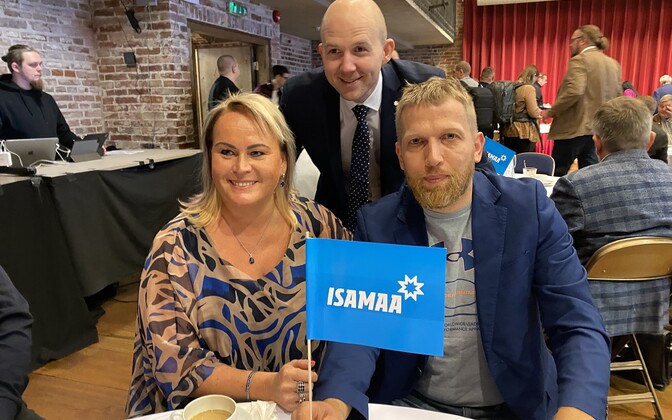
“In the past 30 years, the rule of law, free enterprise, a belief in open markets, an effective state apparatus, competitive factors, geographical location, and the ability to quickly integrate cutting-edge technology have all contributed significantly to Estonia’s economic growth. It appears that many of these factors are no longer effective. We need a concerted effort to develop a new viable economic narrative: What is the driving force behind Estonia’s economic development, Why is Estonia a good place to invest?” Reinsalu said in Viljandi.
“The competitiveness of the country must be the first priority. All national decisions, whether at national or EU level, must protect and improve competitiveness. It is necessary to carry out a quick analysis of the competitiveness of economic sectors and, on this basis, to develop strategies to improve it,” Reinsalu continued.
Cooperation between public authorities and businesses must be substantial, comprehensive, and real, he said. “The business environment needs to be stable and predictable. This means respecting all the laws and best practices that have worked well for 30 years.”
“Third, state operations need major reform and debureaucratization. Over the past decade, all efforts to eliminate red tape and streamline the state apparatus have failed. In fact, bureaucracy and administrative burdens have increased steadily. One reason for this is the ever-increasing requirements at the EU level. Estonia has not been able to sufficiently defend the rules appropriate for a small state. Initiative and freedom are the keys to economic success: freedom always goes hand in hand with responsibility. The public sector must support the economy, not hinder it,” he said.
“The management of public finances must be reformed, and the eurozone’s ideals must be followed. The Estonian state must be able to act sensibly, taking into consideration the possibilities of being a eurozone member as well as the necessities of the country’s development. Taxes must not be manipulated and budgetary stability has to be restored. In times of economic crisis, the state must be able to make counter-cyclical investments. If the state has made excessive commitments, these decisions must be corrected. State reform must include real spending cuts.”

Reinsalu also said that a green turn should not be taken by destroying competitiveness. “Estonia has already enacted a number of green regulations and commitments at the EU level in order to achieve carbon neutrality. There is a growing view that these are unrealistic, plan-driven, and impose the full expense burden on people and businesses. We need clarification on this, as well as a candid re-examination of the concerns at the EU level, if necessary.”
According to Reinsalu, Estonia’s energy sector need a long-term plan to ensure a competitive and safe electricity supply. Estonia’s economic sectors require a well-planned and well-executed relationship with the state.
The utilization of EU money must be more quickly implemented and genuinely help economic development, while the country’s infrastructure investment program must be predictable.
Reinsalu said there was speculation that Isamaa was waiting for the opportunity to join the government of Prime Minister Kaja Kallas (Reform). “I don’t see Isamaa as a substitute party for Eesti 200 or the SDE in the Reform Party government, implementing policies that don’t meet Estonia’s needs. This is not what people, for whom Isamaa represents a positive alternative, expect from us,” Reinsalu said.
—
Follow ERR News on Facebook and Twitter and never miss an update!






